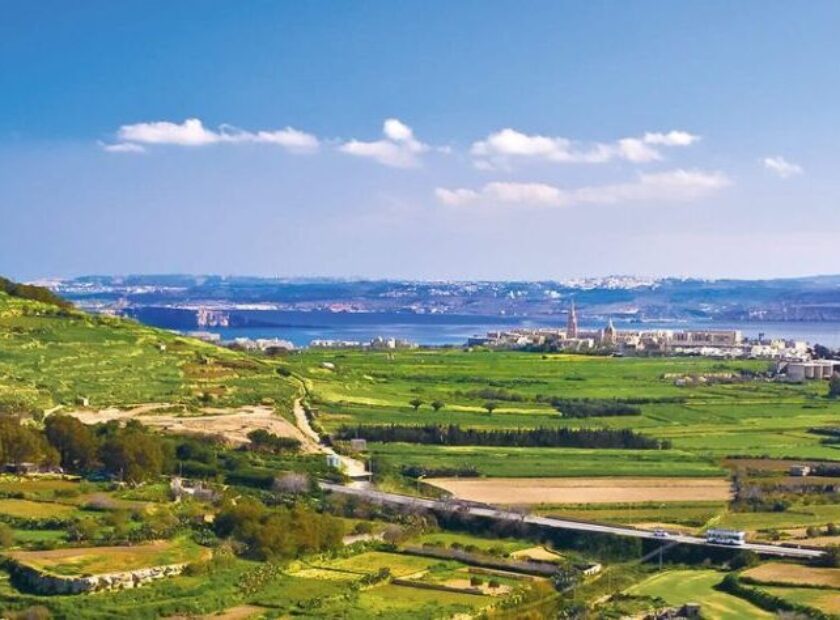
What is the primary role of an Executive Secretary?
The role of an Executive Secretary is defined by Maltese Law under Chapter 363, which established Local Councils. As the administrative and financial head of the Association, Council, or Region they serve, the Executive Secretary occupies a dynamic position requiring meticulous management of all council resources. This includes overseeing public funds with a strong emphasis on accountability and transparency.
Central to this role is the responsibility to effectively lead the council’s workforce while ensuring compliance with legal standards and governance protocols. The Executive Secretary plays a critical role in implementing decisions made by the Executive or Council, thereby translating policy into action that aligns with legal frameworks and community needs.
Collaboration is essential for the effective functioning of the Executive Secretary alongside the President or Mayor, the administrative team, and councilors or committee members. Synergy among these stakeholders ensures cohesive governance and enhances the council’s ability to serve its constituents optimally.
To maximize their impact on residents’ quality of life, those assuming the role of Executive Secretary must demonstrate astute leadership, prudent financial management, and a commitment to ethical governance. By exercising sound judgment and effective resource management, they contribute significantly to the sustainable development and well-being of the community.
In summary, the Executive Secretary’s role is multifaceted, requiring strategic vision, legal compliance, and collaborative leadership to navigate the complexities of local governance effectively. Upholding integrity and accountability in managing council resources is paramount, ensuring that decisions and actions taken serve the public interest and contribute positively to community welfare.
How does your role within the Association of Local Councils differ from your role within an individual Local Council?
The Association represents sixty eight Local Councils and six Regional Councils, serving as a crucial link between these councils, the Central Government, public entities, and agencies. This positioning allows the Association to advocate for local interests both nationally and internationally, making it a pivotal voice in local governance.
As the Executive Secretary of the Association, my responsibilities encompass similar functions to those of Executive Secretaries within individual Local and Regional Councils. However, there are distinct differences in focus and operational scale. One of the primary functions is to provide continuous support to all Elected Members, facilitating their roles through guidance, training initiatives, and ongoing communication. This support is essential for ensuring that councils operate effectively and in alignment with national policies and community needs.
A key aspect of my role is the development of a comprehensive Vision for all Local Councils under the Association’s purview. This involves fostering unity among diverse councils while promoting shared goals and strategies for sustainable community development. Additionally, I collaborate closely with the President of the Association to address national-level concerns affecting local governance, ensuring that the collective voice of councils is heard and respected.
Maintaining effective communication and collaboration with Mayors, councillors, Executive Secretaries, and council employees is central to my responsibilities. This requires a proactive approach to understanding and responding to the unique needs and challenges faced by each council. By fostering strong relationships and providing targeted support, we enhance the capacity of councils to deliver efficient and impactful services to their communities.
The role demands a blend of strategic leadership, diplomatic acumen, and operational expertise. It involves navigating complex interdependencies between local, regional, and national levels of governance, while advocating for policies and resources that benefit all member councils. This dynamic environment makes the role both demanding and rewarding, as it contributes directly to the enhancement of local governance effectiveness and the overall quality of life for residents across Malta.
In summary, while the core functions of an Executive Secretary remain consistent across different levels of local governance, the role within the Association of Local Councils extends to broader strategic initiatives and advocacy efforts that transcend individual council boundaries.
The Association is consulted by various Ministries and Entities on policies, schemes, and projects that will impact Local Councils. Therefore, as Executive Secretary, together with the President, I attend meetings at this level and assist where needed to draft proposals on behalf of the Association on these matters.
On a national scale, our Association has spearheaded significant initiatives, including the weekend collection of organic waste from food establishments and the distribution of contraceptive feed to manage wild pigeon populations in public spaces. These projects necessitate close collaboration with Executive Secretaries from various local councils across the country. Each locality presents unique characteristics and challenges, making the implementation of similar projects a complex endeavor in itself.
As the Executive Secretary of the Association, I am currently leading an administrative team that includes five apprentices from MCAST. The goal is to nurture these apprentices in the workings of Local Councils, so we will have five individuals who can provide support where needed
Together with the President of the Association, I represent the Association as well as the Local Councils in various international forums. The Association works closely with European networks such as All Digital Network, the European Association for Local Democracy (ALDA), the Council of European Municipalities and Regions (CEMR), the Commonwealth Local Government Forum (CLGF), Local Governments for Sustainability (ICLEI), La Rotta dei Fenici, and the European Local Democracy Week.
Through active participation in these international forums, the Association brings back to Malta various projects and initiatives, as well as funding and training opportunities. The Association is also selected by the European Commission or by respective networks to serve as the National Coordinator, ensuring that various initiatives are implemented at the local level. This involves substantial coordination work both locally and internationally.
Recently, the Association participated in All Digital Weeks, where various initiatives, including sessions on Robotics and virtual reality, were brought to the community level. Additionally, a session was held by representatives from Meta (Facebook) aimed at general election candidates to help them better manage their social media pages.
The Executive Secretary of the Association of Local Councils is responsible for identifying various opportunities for the Association to join similar initiatives and bringing various opportunities, including projects funded by European Funds, to the local level.
What are the continuous daily challenges?
Daily challenges are a constant reality for any organization, and we must navigate them wisely to achieve our established goals. Two primary challenges we face are limited human resources and financial constraints.
Operating with just an Executive Secretary and three clerical workers presents ongoing difficulties, especially given the diverse range of topics the AKL addresses, which often require technical expertise and professional advice. This necessity further amplifies our financial challenges. To mitigate these issues, we proactively seek additional funding through European projects, various schemes, and local funds. Our strategy includes investing in MCAST students for apprenticeships in administrative, managerial, and digital roles, which not only supplements our workforce but also fosters young talent. Additionally, we leverage the Community Inclusive Employment Scheme, employing two workers with disabilities and reinforcing our commitment to workplace inclusion. Inclusion is not merely a policy for us but a practice we diligently uphold, ensuring a diverse and supportive work environment.
The idea of “cooperation” can present challenges in certain contexts or for specific individuals and communities. What insights can you provide on this topic?
Working in the field of Local Government entails collaborating with a wide range of stakeholders, both internal and external, due to the expansive nature of the sector. Consequently, cooperation among all parties is crucial, not only to ensure effective operations but also to optimize resource utilization.
From my experience in this field and from good managerial practices, I often observe that while cooperation may sometimes seem impossible, I believe it is more important to emphasize the need for collaboration among parties. This is particularly evident at both administrative and political levels, where when parties are involved from the beginning of the process or consulted regularly, they tend to align themselves more with the project, making cooperation more natural.
The law – knowledge of what should and should not be done… how important and challenging is this?
The law is there and must be respected in its entirety. However, this does not mean that the law restricts you from implementing initiatives. This is because, when circumstances change due to the times in which we operate, a consultation process begins with the concerned parties, and a process is initiated at the Ministerial level where legal amendments are made so that progress is not stalled due to legal anomalies. Therefore, it must be noted that laws are living entities and can be amended through high-level discussions. In the field of Local Government, there have been several amendments, including the 2019 Reform and legal amendments in subsidiary laws, such as those referring to the eligibility requirements for working in the field of Local Government.
Therefore, despite the various challenges that different laws bring to operations, they are certainly important to observe to ensure good governance.
Do you believe that council members fully understand the role of the Executive Secretary? And what about the general public?
In my experience as an Executive Secretary, I enjoy respect from many Mayors and Councillors, but it must be emphasized that the Executive Secretary is a public officer who is there not only to support and implement what has been decided by the politician but also obligated to guide the Council or Committee to ensure that what is being proposed is within the parameters of the law. Lack of awareness on this from both sides leads to unnecessary conflicts between the administrative and the political bodies, resulting in a lack of efficiency and accountability. Therefore, the secret to a well-functioning Association/Council or Region is having a strategic vision of where the Council wants to go and harmony between the administrative team and the Elected team. Both of these need to understand that they must work together for the common good of the residents and not be adversaries.
You are known for your capabilities… this has led you to take on more responsibilities. How do you manage your time? What’s the secret?
As an Executive Secretary, about two and a half years ago, I was also given the responsibility to assist as an Acting Deputy Executive Secretary in the Port Region as well as Deputy Executive Secretary in the Local Council of Ħal Tarxien. Apart from everything else, I feel obliged to provide support and assistance where needed; ultimately, as an Association, this is one of our missions.
Effectively managing operations across three offices, both locally and regionally, requires more than just a magic wand; it demands strong management and leadership skills.
It’s crucial that every employee, regardless of their role, feels valued and empowered. This fosters a shift in the attitude of the administrative team. As individuals take ownership of their responsibilities, tasks are approached with greater care and accountability. Moreover, the Council’s work strategy should be effectively communicated and discussed with all staff, fostering their engagement in ongoing projects and encouraging them to exceed expectations.
Besides work, I am also a mother of two children. Therefore, time must be managed well to still have quality time with the children. The importance of being able to prioritize things, not letting less important matters disrupt the routine, and seeing every problem as a challenge that needs a solution is essential. Finding the balance along with determination is what one needs.
How do you see yourself in the near future?
Obviously, I will continue to contribute in the administrative and managerial field as a Public Officer. The Public Sector, besides being interesting to work in, is also a fulfilling sector where through honest work and continuous commitment, one can make a positive impact on the community.
The significant amount of work carried out within the AKL, together with President Mario Fava and your team, is something to be proud of. What was the key factor for your determination?
Along with the President, back in 2017, we witnessed a significant transformation of the Association through rebranding, the establishment of a Vision, and administrative restructuring. I believe that, as I mentioned earlier, the direct involvement of every individual in these processes helps ensure that everyone feels part of the change and that each person feels useful. Additionally, trust is a crucial ingredient; without it, achieving such results is certainly impossible. Mutual trust between the Elected members and the administrative staff is crucial – trust that not only resonates among individuals who meet daily at the table to discuss, but also between the Association’s Executive, Regional Presidents, Mayors, and Councillors, whom we all represent.
Mario Fava
President



